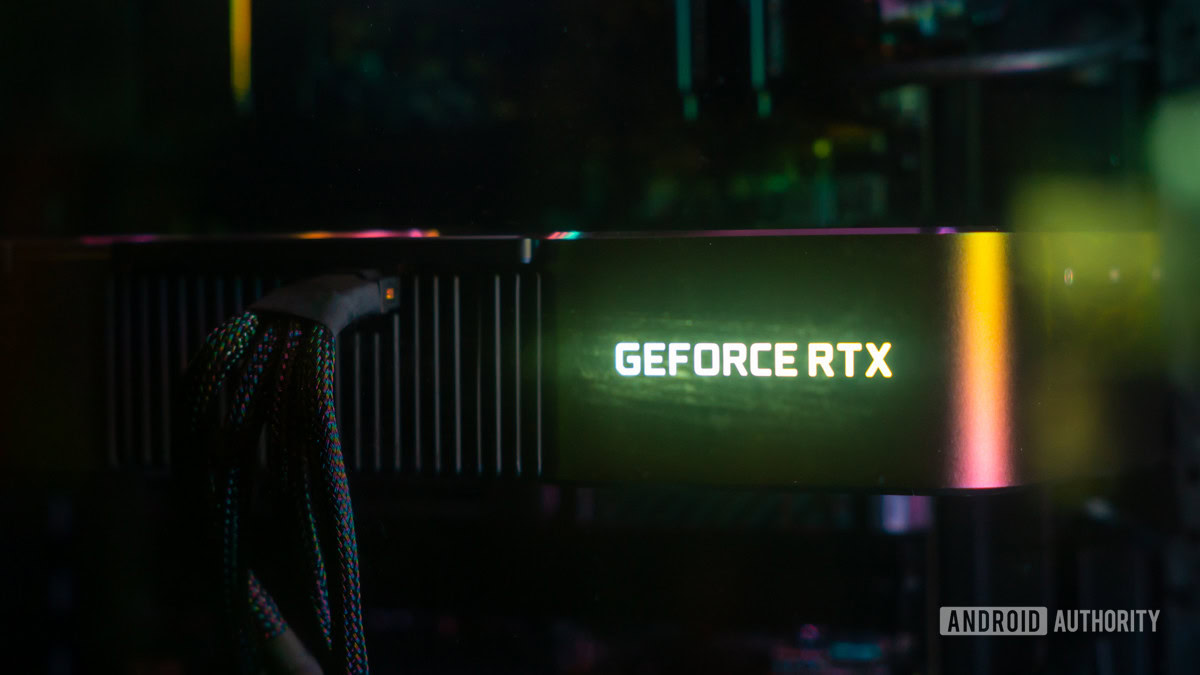Affiliate links on Android Authority may earn us a commission. Learn more.
NVIDIA GPUs are coming to Chromebooks for the first time ever
Published onMay 23, 2023

- Leaked information points to Google working on a Chromebook with a discrete GPU.
- At least two models are in the works, both with an as-yet-unannounced NVIDIA RTX 4050 card.
- There is no timeline for a release quite yet.
Earlier this year, Google and several partners made a big to-do about gaming Chromebooks. These laptops were designed with gaming specifically in mind, right down to RGB lighting and WASD keys that stand out from the rest. However, they were only focused on cloud gaming, as they still didn’t have a dedicated graphics card.
Now, it looks like that could change. According to information seen by 9to5Google, Google is working on a Chromebook with a discrete GPU. Specifically, the GPU appears to be an NVIDIA RTX 4050 card. Interestingly, NVIDIA hasn’t announced this card series yet. The most recently launched series from the company is the 4060 series. Theoretically, the 4050 series would be less expensive and slightly less powerful. For reference, the 3050 series — which would be last year’s analogous counterpart — appeared in sub-$1,000 budget-oriented gaming laptops.
Internally, Google is referring to the in-progress prototype as “Hades.” There are also two OEM prototypes based on “Hades,” known as “Cora” and “Zeus.” Theoretically, these would be two Chromebooks consumers would be able to buy, although the OEMs involved are unknown for now.
What else is known about Chromebooks with a discrete GPU? Information suggests they will have a 13th-gen Intel processor and DDR5 RAM. In other words, these should be quite powerful, even if Chrome OS itself will present some limitations for gamers.
Finally, there’s also information to support that two features could debut on these Chromebooks. The first would be Extended Power Range, which would allow up to 240W of power for the Chromebook via a USB-C cable. This could negate the need for a separate power cable for the Chromebook, which is something traditional gaming laptops need to deal with. Elsewhere, there could be a way to bypass charging the battery and instead power the Chromebook directly. This would cut down on heat while simultaneously preserving battery health. No Chromebooks have ever had these features before, and the former hasn’t even appeared on a traditional gaming laptop yet.
We’ll need to wait and see how consumers respond to a Chromebook with a discrete GPU. If you can afford this, why wouldn’t you just get a “real” gaming laptop that plays nearly every game rather than a Chromebook that won’t support many titles? We’ll see how this plays out for Google.